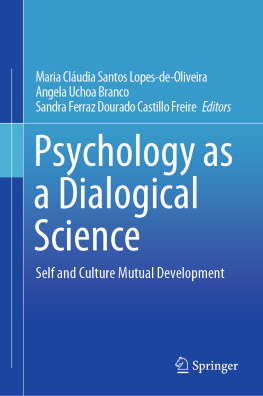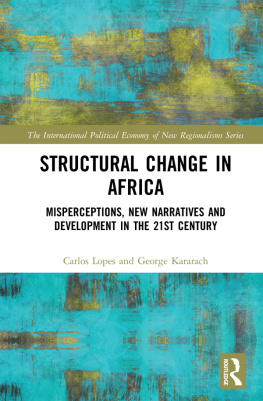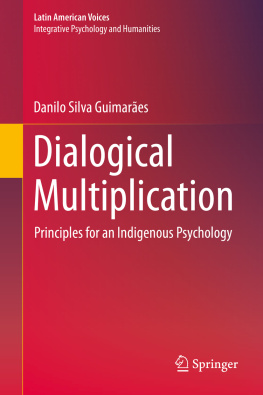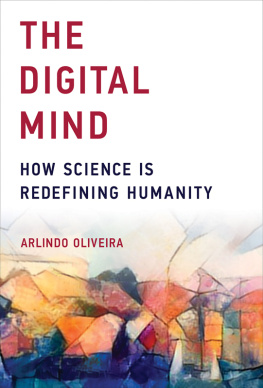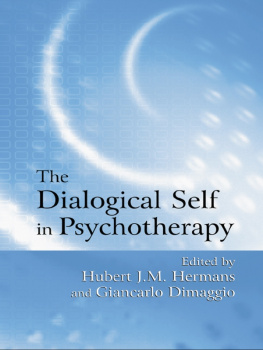Maria Cláudia Santos Lopes-de-Oliveira - Psychology as a Dialogical Science : Self and Culture Mutual Development
Here you can read online Maria Cláudia Santos Lopes-de-Oliveira - Psychology as a Dialogical Science : Self and Culture Mutual Development full text of the book (entire story) in english for free. Download pdf and epub, get meaning, cover and reviews about this ebook. year: 2020, publisher: Springer Nature, genre: Romance novel. Description of the work, (preface) as well as reviews are available. Best literature library LitArk.com created for fans of good reading and offers a wide selection of genres:
Romance novel
Science fiction
Adventure
Detective
Science
History
Home and family
Prose
Art
Politics
Computer
Non-fiction
Religion
Business
Children
Humor
Choose a favorite category and find really read worthwhile books. Enjoy immersion in the world of imagination, feel the emotions of the characters or learn something new for yourself, make an fascinating discovery.
- Book:Psychology as a Dialogical Science : Self and Culture Mutual Development
- Author:
- Publisher:Springer Nature
- Genre:
- Year:2020
- Rating:5 / 5
- Favourites:Add to favourites
- Your mark:
- 100
- 1
- 2
- 3
- 4
- 5
Psychology as a Dialogical Science : Self and Culture Mutual Development: summary, description and annotation
We offer to read an annotation, description, summary or preface (depends on what the author of the book "Psychology as a Dialogical Science : Self and Culture Mutual Development" wrote himself). If you haven't found the necessary information about the book — write in the comments, we will try to find it.
Psychology as a Dialogical Science : Self and Culture Mutual Development — read online for free the complete book (whole text) full work
Below is the text of the book, divided by pages. System saving the place of the last page read, allows you to conveniently read the book "Psychology as a Dialogical Science : Self and Culture Mutual Development" online for free, without having to search again every time where you left off. Put a bookmark, and you can go to the page where you finished reading at any time.
Font size:
Interval:
Bookmark:
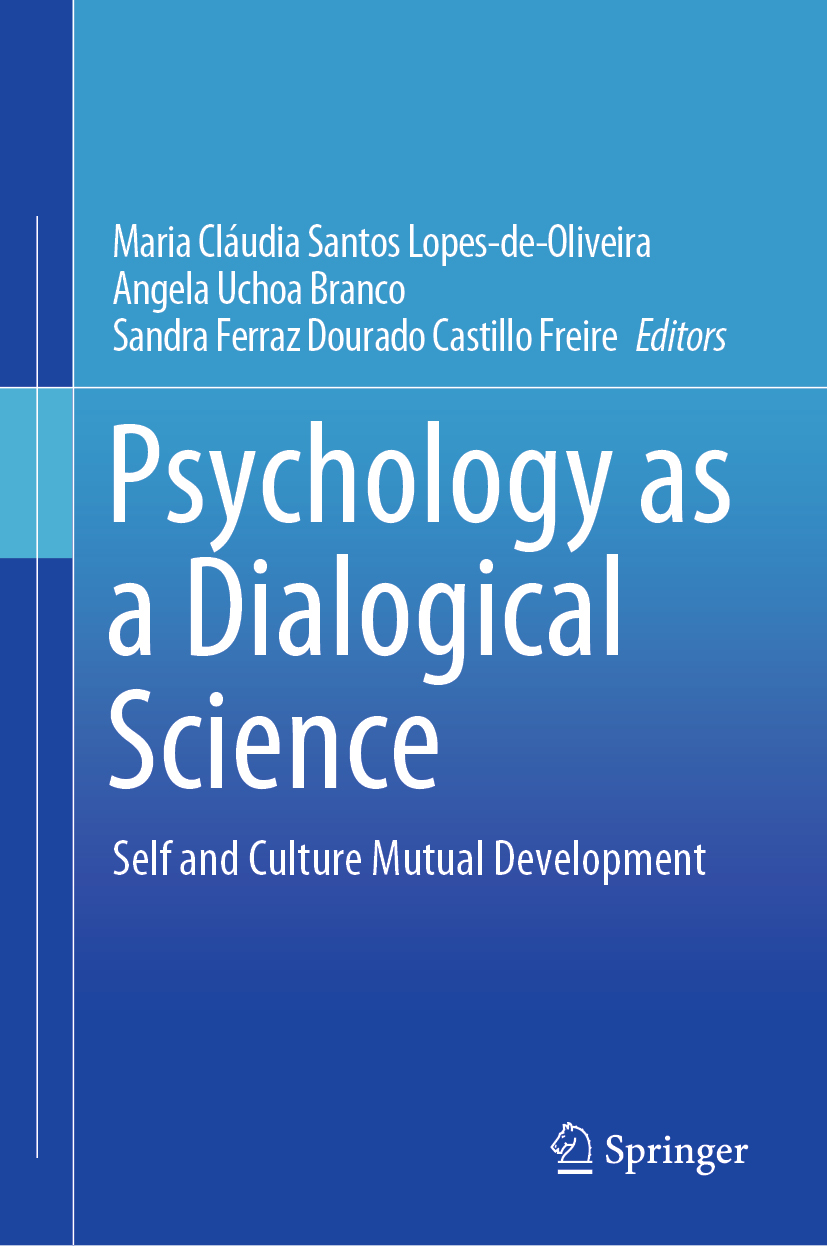

This Springer imprint is published by the registered company Springer Nature Switzerland AG
The registered company address is: Gewerbestrasse 11, 6330 Cham, Switzerland
Dialogueis often used to refer face-to-face communication, and language use in the encounter of two or more persons. Early in the twentieth century, Mikhail Bakhtin, Valentin Voloshinov, Martin Buber, Emanuel Levinasand later on, Paulo Freire, Ivana Markova, Per Linnel, and Hubert Hermans, among othershave coined related terms such as dialogism, dialogic, dialogicity, and dialogicality, in a theoretical effort that paved the way to expand the original idea of dialogue towards the status of a general paradigm. This paradigm was forged in order to approach, interpret, and explain relational phenomenawhich includes most of the human issues. As we see it, however, the early development of the dialogical paradigm in social sciences still preserved a rational stance on the notion of dialogue, conceiving of dialogical events in terms of representations and other cognitive concepts and models. One major contribution of this book is, therefore, to elaborate arguments that go beyond (inter)individual cognition, bringing affectivity, culture, semiosis, and time as intrinsic, interdependent elements of a dialogical, process-focused, approach to the scientific field of psychology.
In this book, the concept of dialogical, through the lenses of psychology, goes beyond the common idea of dialogue itself. Chapters do not concern generalized individuals (persons or institutions), but concrete, contextualized, and socially situated psychological phenomena that emerge within semiotic affective groundings, and which reshape meanings through relations, as an architects imagination while giving form to space.
After all, what is the point of claiming for a dialogical science in psychology?
In its aim at reaching the standards as a scientific disciplinein Karl Poppers termsthe field emerged in an approximation to natural science. Throughout the last two centuries, theoretical models in psychology have approached the human mind and behavior from empirically testable observations in search for indisputableveritas. Such monological stance, i.e., a generalizing perspective, ignored the core role of social transactions in the construction of the person. Human psyche was conceived as an objective phenomenon, composed of specific elements that could be isolated and studied independently by experimental control. Furthermore, the reductionist psychological paradigm considered human beings as individually formed, and explanations regarding psychological functioning were searched, exclusively, inside individuals minds and brains, or in mechanist sets of reinforcement contingencies. As a consequence, theories that considered human beings as part of a web of interpersonal relations were unusual, despite evidence that such webs could provide better models to explain how the human mind operates through complex means, and how human babies turn into social beings from their first experiences in ontogenesis. These novel theories violated long-established political frontiers between scientific fields. However, for the last 40 years, critical perspectives within the fields of psychological and sociological theoretical thinking have produced an important epistemological shift in that early and long-lasting monological landscape.
When European psychology researchers moved to North American universities, during WWII, they mostly adapted their work according to the US liberal and pragmatic stance. After the extraordinary development of a positivist, experimental, and individualistic psychology, and with the end of the Soviet Union in the late eighties, there was a growth of more democratic international economic and political relationships. Such changes paved the way and set the context for a more dialogical framework in science as a whole.
It is noteworthy that this theoretical shift represented, in the beginning, the mere transition of psychologists attention from a focus on the individual to a focus on the social group, from a timeless to a historical perspective, which, however, preserved those traditional dichotomies that marked most theoretical elaborations in psychology. Dichotomies, though, do not lead to the elaboration of a dialogical theoretical approach.
To achieve a real dialogical shift in psychology, it is not sufficient to include the external world in the psychological analysis, as a separated stance. The dialogical shift is, actually, derived from the approximation of critical psychology to different critical philosophies and epistemologies. During the nineties, a radical epistemological movement came into play. In a very fast pace, explanatory models began to elaborate on the internal and external (relative to the individual) elements of the pairs (I/other, body/environment, self/culture, and so on) as a psychological unity. The dual unity of a dialogical science does not eliminate the differences and tensions between the original elements in relation. In fact, elements do not disappear. They are understood and explained, according to the principle of bidirectionality, which refers to their mutual influences. In other words, they are related to each other according to the principle of separated inclusiveness (Valsiner & Cairns 1992).
Dialogical psychology, hence, deals with systemic relations that connect quite fluid human phenomena in time and space, dynamic in their nature, and semiotic in their quality. This book, therefore, represents an effort to translate into theoretical, methodological, and practical language the principles of dialogical psychology. Not only do we intend to present dialogical psychology by means of a different interpretive lens, as we argue in favor of the relevance of this epistemological orientation to guide psychological contributions to collaborate and deal with contemporary critical issues.
Font size:
Interval:
Bookmark:
Similar books «Psychology as a Dialogical Science : Self and Culture Mutual Development»
Look at similar books to Psychology as a Dialogical Science : Self and Culture Mutual Development. We have selected literature similar in name and meaning in the hope of providing readers with more options to find new, interesting, not yet read works.
Discussion, reviews of the book Psychology as a Dialogical Science : Self and Culture Mutual Development and just readers' own opinions. Leave your comments, write what you think about the work, its meaning or the main characters. Specify what exactly you liked and what you didn't like, and why you think so.

